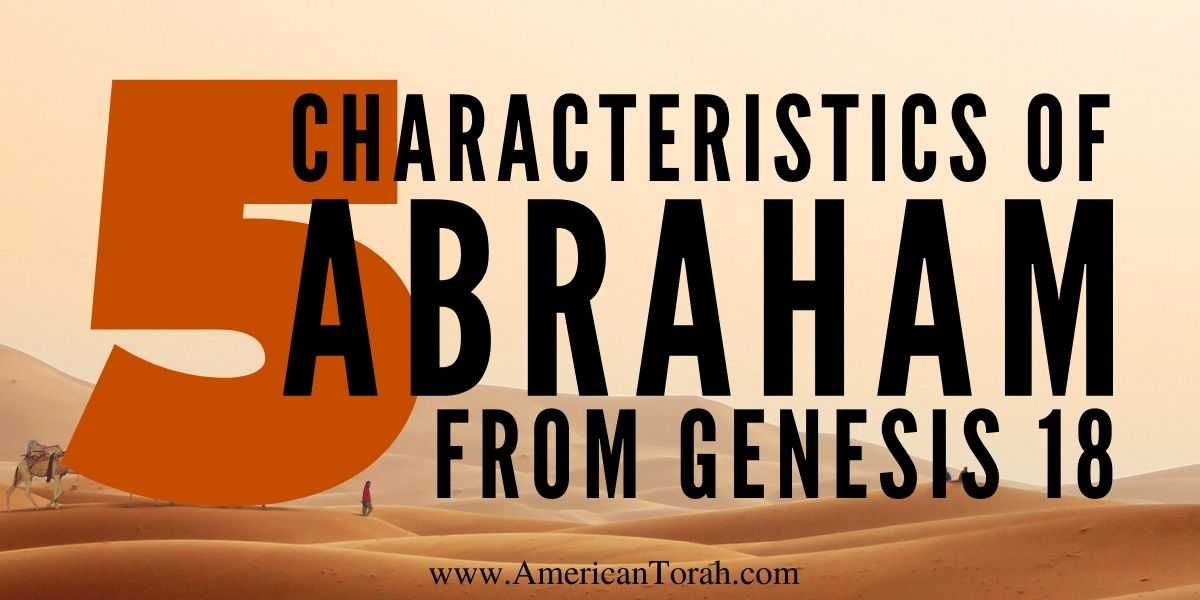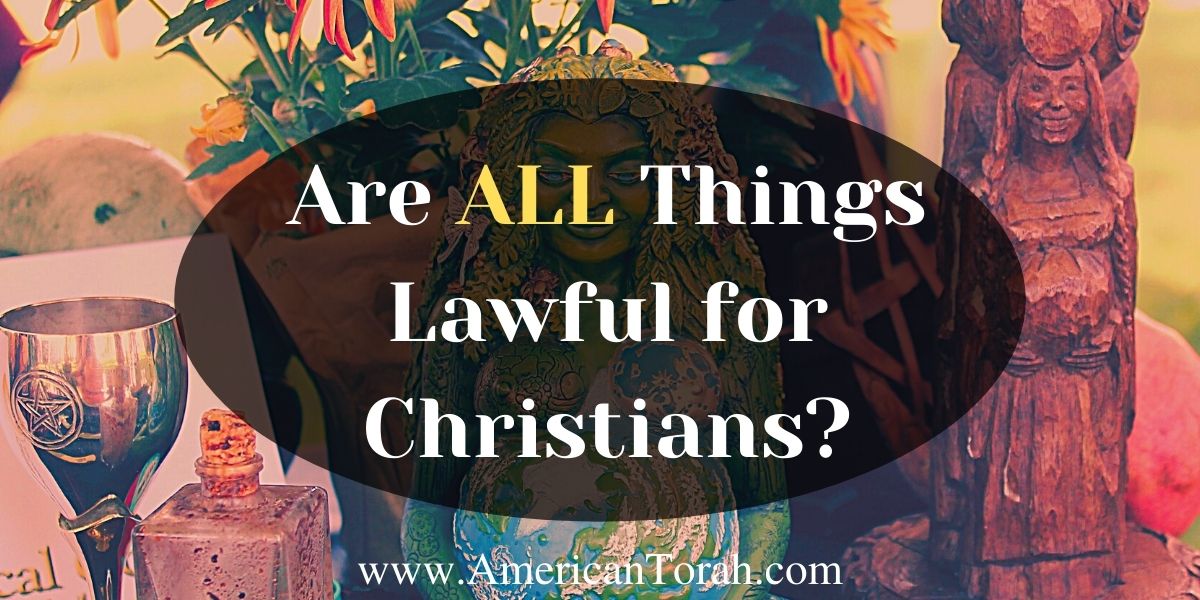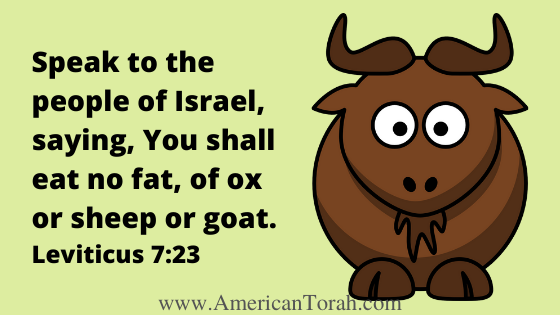In 2 Chronicles 20:7, King Jehoshaphat called Abraham God’s “friend”, and this characterization was confirmed by James:
You see that faith was active along with his works, and faith was completed by his works; and the Scripture was fulfilled that says, “Abraham believed God, and it was counted to him as righteousness”—and he was called a friend of God.
James 2:22-23
It’s very high praise to be called “friend of God”. Although no mere man will ever approach the power, authority, and majesty of the Creator, this term implies that Abraham was as near to that stature as any man could be. Neither Moses, who led the Hebrews out of Egypt, nor Elijah, who was taken directly to Heaven without seeing death, were ever given a title as intimate as “friend”.
We know that Abraham didn’t earn a place in God’s inner circle through obedience or great deeds, but through his trust in God’s promises and reliance on divine Providence for his life and sustenance.
…we say that faith was counted to Abraham as righteousness.
Romans 4:9
Yet, Abraham’s faith was not–could not be–without actions. Romans 4:9 says that Abraham’s faith was counted as righteousness, but v12 refers to “the footsteps of Abraham’s faith”. “Footsteps” implies action. As James wrote, “Faith without works is dead”.
Hebrews 11 describes this principle at work in Abraham’s life:
By faith Abraham obeyed when he was called to go out to a place that he was to receive as an inheritance. And he went out, not knowing where he was going….By faith Abraham, when he was tested, offered up Isaac, and he who had received the promises was in the act of offering up his only son.
Hebrews 11:8,17
Character Is the Difference Between an Acquaintance and a Friend
All of Scripture holds Abraham up as the paragon of faith and faithfulness to YHWH. Other than Yeshua himself, I don’t believe there could be a better role model for a believer in the God of Abraham, than Abraham himself.
We know that God loves both faith and obedience and many people throughout history have had an abundance of both. I already mentioned Moses and Elijah, but also consider Enoch, Noah, Joseph, David, Elisha, and Daniel. They were all men of great faith and obedience.
Everyone admires some people and calls other people friends, and these two sets of people are frequently not the same. The difference between them is not due only to proximity or convenience. You can admire a person’s accomplishments and appreciate his loyalty without actually liking him and calling him a friend. In those cases, the difference between an acquaintance and a friend most likely lies in the person’s character.
Something about Abraham’s character set him apart in God’s eyes from all other righteous men and women, but what was that something? Our only reliable source of information about his life is the Bible, and I think the story in Genesis 18 about him entertaining three travelers nicely illustrates several of his outstanding qualities.
Abraham and the Three Visitors
And YHWH appeared to him by the oaks of Mamre, as he sat at the door of his tent in the heat of the day. He lifted up his eyes and looked, and behold, three men were standing in front of him. When he saw them, he ran from the tent door to meet them and bowed himself to the earth and said, “O Lord, if I have found favor in your sight, do not pass by your servant. Let a little water be brought, and wash your feet, and rest yourselves under the tree, while I bring a morsel of bread, that you may refresh yourselves, and after that you may pass on—since you have come to your servant.” So they said, “Do as you have said.” And Abraham went quickly into the tent to Sarah and said, “Quick! Three seahs of fine flour! Knead it, and make cakes.” And Abraham ran to the herd and took a calf, tender and good, and gave it to a young man, who prepared it quickly. Then he took curds and milk and the calf that he had prepared, and set it before them. And he stood by them under the tree while they ate.
Genesis 18:1-8
They say that a picture is worth a thousand words, but Genesis does an outstanding job of painting complex pictures with few words. These eight verses contain volumes about Abraham’s character.
Abraham Is Hospitable
Abraham was an old man at this time, ninety-nine years old, and lived near the Dead Sea in the land we now call Jordan. Although parts of the text in chapters 18 and 19 hint that this event took place in the spring, it was evidently an unseasonably hot day, because Abraham was resting from the midday heat in the coolest place available, just outside the entrance of his tent. Out of the sun, but still in the breeze.
The three men who approached on the road had no servants, guards, or other retinue. They had no mounts or baggage. Although the text makes it plain that this was YHWH himself on his way to Sodom, it’s also clear that Abraham didn’t know this until they left his camp. There is nothing at all to indicate that they appeared to be anything other than ordinary men. I’m sure that Abraham had seen many itinerant laborers traveling much as these men did.
Yet, despite his discomfort, when he saw three men approaching in the distance<1>, he jumped to his feet, ran to meet them, and begged them to stop at his tent to eat and rest. He couldn’t have expected to make any trade deals or receive payment in exchange for anything he might offer them, because they had nothing to trade. He didn’t mind his own business, waiting for them to approach him. Abraham was just exceptionally eager to offer his resources for their refreshment. He considered it an honor to host and entertain strangers.
Abraham Is Generous
According to most sources I found, a seah is a dry measure equaling nearly two gallons, yet Abraham told Sarah to prepare bread for his visitors from three seahs of flour. That’s far more bread than any person could possibly eat! I believe that Abraham was either preparing a feast for his entire household with his visitors as guests of honor or else intended to send them on their way with sacks full of bread for their journey. In either case, he gave far more than they would have asked if he had waited for them to ask.
This wasn’t yesterday’s bread or leftovers from the morning meal, although such was undoubtedly available. Nor was this barley or course-ground; it was fine ground wheat flour, something that most people would probably reserve only for rare occasions, if they could afford it at all.
Abraham then picked out a young calf from his herd and told one of his servants to slaughter and prepare it immediately. Ranchers typically wait until a calf is at least nine months or, more often, twelve to eighteen months old before sending it to the butcher. This age range represents the ideal concurrence of weight and consistency, maximizing each animals profitability. The meat of a younger calf may be more tender, but there’s less of it, making it much more expensive…but still far more than three men could eat.
In short, Abraham was extraordinarily generous to three men whom he probably believed he would never see again.
Abraham Is Impartial
When Joseph dined with his brothers in Egypt, he gave Benjamin more than the others. He was hinting to the rest that he knew more about them than they did about him, but he was also showing favoritism to his only full brother. If a wealthy man in the desert hosted a party of travelers, they would have expected him to give a larger proportion to their leader.
However, when Abraham met the three men on the road, he didn’t try to determine which was the superior. He didn’t ask who was the leader or show any deference to one above the other, he bowed to all three together. When he sent Sarah to prepare bread, he told her to use three measures of flour. One seah would have been enough for all three men, but Abraham wanted to make bread using one measure for each man, symbolically not showing favoritism to any of them. If he sent them off with the leftovers, he could send each man with an equal amount.
His behavior was in keeping with a consistent principle in God’s Law of treating all people with a basic level of respect no matter what their resource or station in life.
Now then, let the fear of YHWH be upon you. Be careful what you do, for there is no injustice with YHWH our God, or partiality or taking bribes.
2 Chronicles 19:7
Abraham Is Humble
The first thing that Abraham did when he saw the three men was jump to his feet and run to meet them–he didn’t wait for them to come to him–and when he reached them, he bowed to the ground as if they were royalty, and he called them “lord”. Perhaps at some level he knew that he was encountering God himself, hence his use of the singular “lord”, but it doesn’t appear that he had any conscious knowledge of it.
Abraham was an extremely wealthy and influential man. As the story of Lot’s kidnapping in Genesis 14 shows, he was a peer of the region’s kings. Anyone visiting his camp would have expected to bow to him and call him lord, but that’s not the way Abraham treated his visitors. He humbled himself from the moment he saw them. He bowed, praised, begged, and served them, and then he stood by, refilling their glasses and plates, as they ate and rested. When they left his camp, he accompanied them along the road.
Like Messiah Yeshua, although Abraham was next to kings in wealth and authority, he made himself to be a servant for the benefit of strangers.
Abraham Is a Leader in His House
Although Abraham served his guests, he would have been derelict in his responsibilities as a host if he had left them alone for more than a moment. Instead he directed Sarah to prepare bread and a servant to prepare meat. Neither of them asked why three men needed so much. I’m certain they were used their patriarch treating guests lavishly, but they didn’t complain. Like Noah’s family, they followed his instructions despite how outlandish they might have sounded.
This was far from the first time that Abraham demonstrated superior leadership qualities–remember again the incident when he rescued Lot–but it’s one thing to command servants and lead men in battle. It’s another thing to inspire your wife to complete devotion, even, as Peter wrote, calling him “lord” as he debased himself before strangers.
Lest you think that this quality is limited only to men, remember what Paul also wrote in 1 Timothy 5:14 about women in the congregations he planted around the Roman Empire: “So I would have younger widows marry, bear children, manage their households, and give the adversary no occasion for slander.” Men are to lead their households as husbands and fathers, but so are women as wives and mothers, under the authority of their own husbands.
Abraham Is an Example for All Believers
Each of these characteristics–hospitality, generosity, impartiality, humility, and patriarchal leadership–is an example for all worshipers of the God of Abraham.
“Show hospitality to one another without grumbling,” Peter wrote. “As each has received a gift, use it to serve one another.” Paul wrote that “God loves a cheerful giver,” and James that, “if you show partiality, you are committing sin.” How many times did Yeshua tell us to follow his example in being a servant to all? “The last will be first and the first will be last.” Finally, Paul wrote to both Timothy and Titus that no man is qualified to be a leader of God’s people if he is unable to keep his own family in order. An elder in the congregation must first be a patriarch in his own house.<2>
These five qualities aren’t just something to be admired. They are deep in the heart of God. When Paul wrote in Romans 12:2 “be transformed by the renewal of your mind”, this is part of what he meant. “Work out your salvation with fear and trembling” by following the examples of Paul and Abraham, even as they followed the example of Yeshua.
Be hospitable.
Be generous.
Be impartial.
Be humble.
Be a leader.
Of course, none of these things can earn you a place in God’s Kingdom, whether in this life or the next. For that, one needs faith, a complete reliance on the grace of God to forgive inevitable sins. Fortunately, I believe that Abraham’s obedience holds a secret to improving faith along with behavior. As with everything else a person can do, you can strengthen your faith by exercising it through obedience. Through faith, decide to keep one more of God’s commands than you did yesterday–or keeping one better–believing that all of his instructions are for our benefit. As your obedience proves the wisdom of God’s word over time, it will also strengthen your faith.
God doesn’t expect you to be perfect today, or even in this lifetime–he certainly knows that I am very far from that goal–but perfection in faith and righteousness, like Abraham, remains the aim of all our studies, prayers, and efforts at obedience.
<1> The ESV says he saw the men “standing in front of him”, but the Hebrew could as easily be translated “standing across from him”. Since he ran to meet them, they could hardly have been standing only a few feet away as the English sounds to modern ears.
<2> 1 Peter 4:9-10, 2 Corinthians 9:7, James 2:9, Mark 9:35, 1 Timothy 3:4-5 and Titus 1:6.











